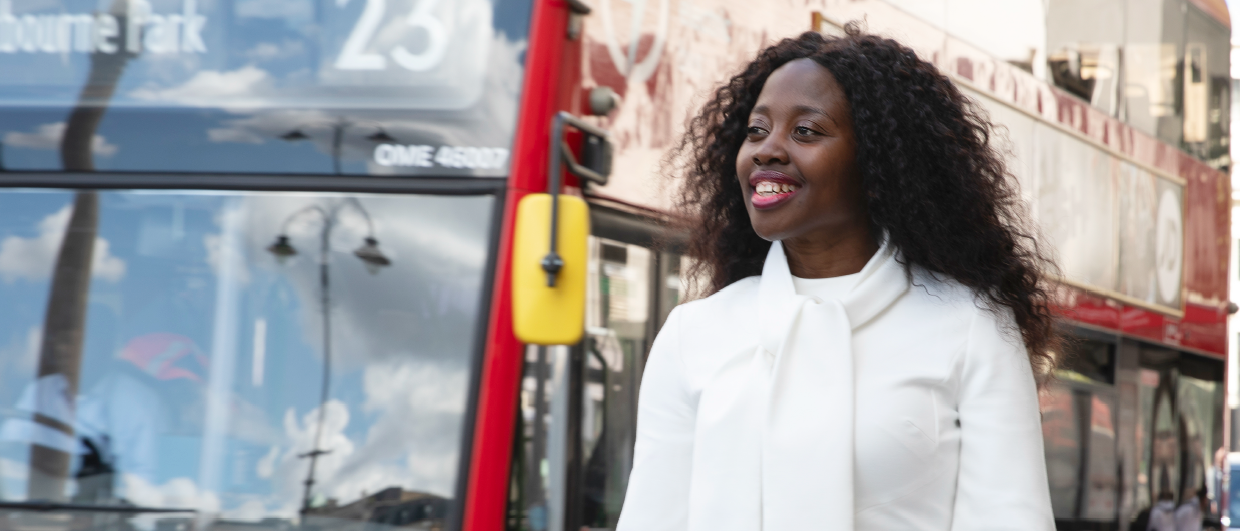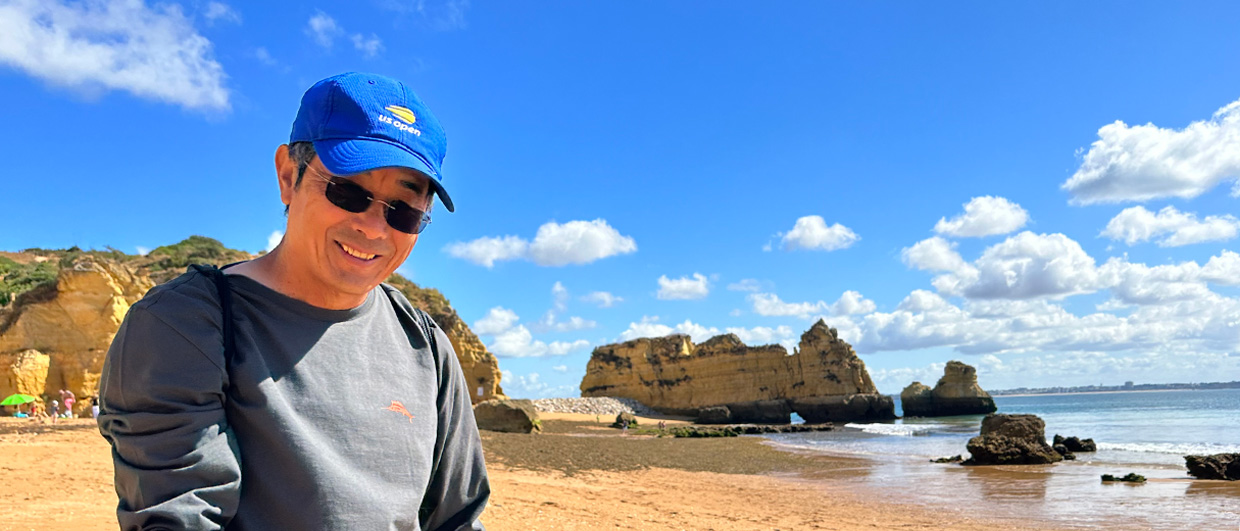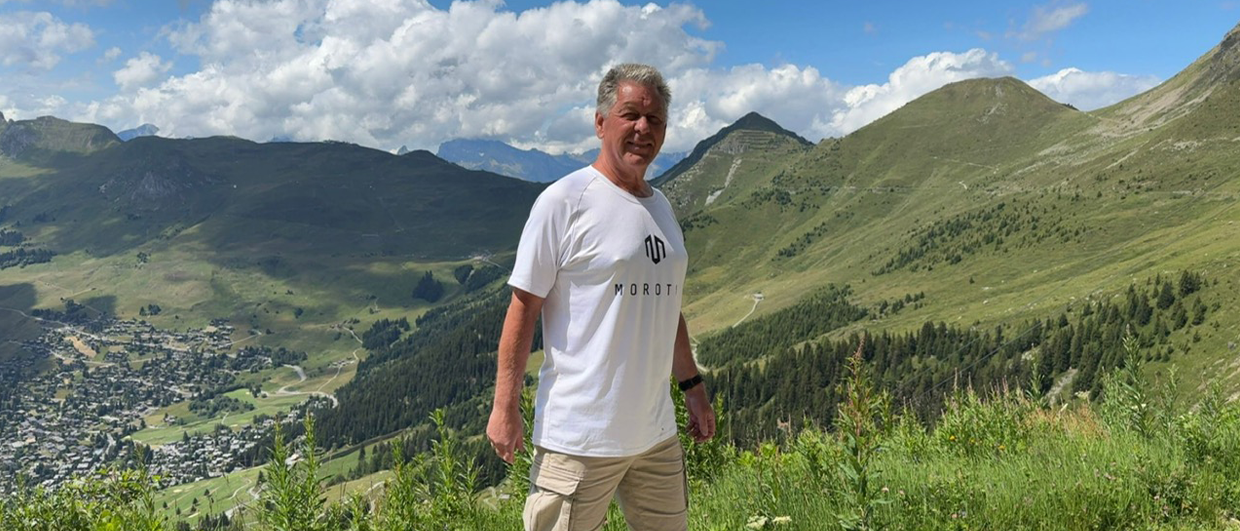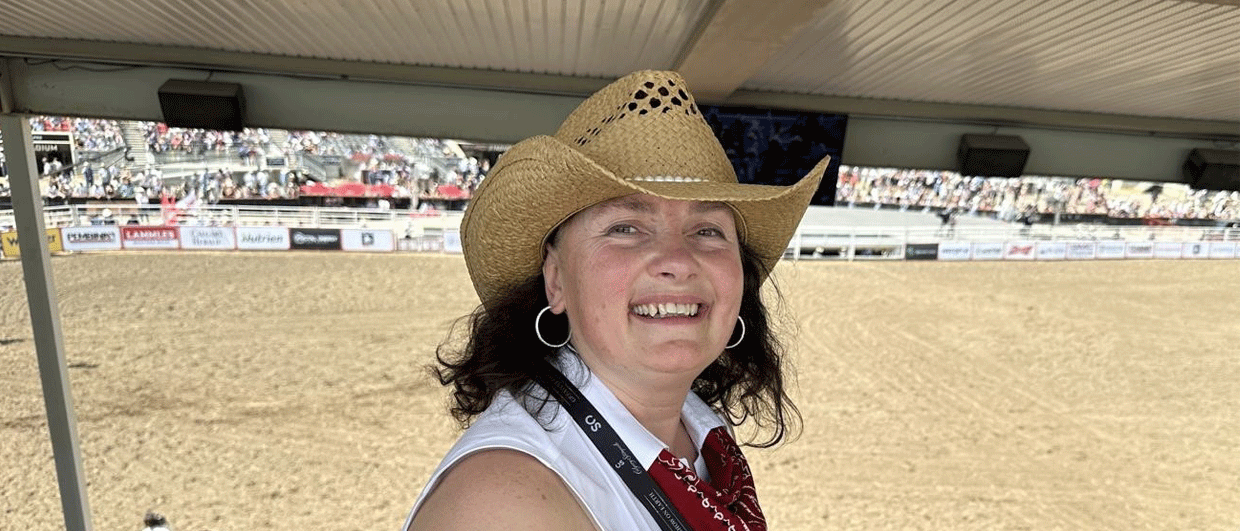“I was born disciplined”, says Aluka at the start of the interview. “With my parents both being academics, it was no surprise that I wanted to learn”, she continues, “but I was so determined that they never needed to chase me for any school-related work.”
Aluka grew up in Abraka, a small town in Nigeria’s Delta State, which gets its name from the fact that it is situated in the larger Niger Delta in the south of the country. Her parents both taught at Delta State University.
Aluka did not stay in Abraka for long, though. When she turned eleven and had finished primary school, she went to boarding school. “Looking back, says Aluka, I think my parents were very brave to let me go at that age.” But she made it her new home straight away. “I saw kids arriving and burst out crying once their parents were about to leave. The only thing I thought was, what is wrong with you? It wasn’t because I lack emotions; it was because I was so focused on what I was going to do there”, she says.
Aluka stayed at the boarding school for six years, after which she went to the Obafemi Awolowo University in Lagos. That meant she also left Delta State for the first time, not knowing that she would not come back, at least until today.
“I loved numbers, which is why I decided to study computer engineering”, Aluka continues. It was supposed to be a five-year course, but because of the frequent strikes from university personnel, it took her a bit longer. “It’s there where I met my best friends, and we still stay in touch”, she says.
After university, Aluka spent a year in mandatory military country service. “I liked it though”, she says, “especially because I was sent to a completely different part of the country. I was transferred to the north. It was a great year if only to be exposed to yet again a completely new language and a different culture.”
Military camp service may sound harsh, it was actually much more civilized than that. Following the intensive camp drills, I was lecturing at the local university as an assistant to the professor and also at local elementary schools”, she says. “And it was really nice to do that, and see the curiosity of the kids, especially the girls who tended to be the quiet ones.”
After her service, Aluka moved to Abuja, the capital of Nigeria in the middle of the country. “It was the best city that I had lived in thus far, she says. “It’s new, it’s big, and there is a lot of business and tech whilst it still felt homely at the same time.” She worked there as a network engineer in a telecom startup, until a friend asked what she wanted to do next…
Saving for a masters
And this friend happened to work for Schlumberger….
“I must be honest about this”, continues Aluka, “I didn’t join Schlumberger because I was so interested in the oil and gas industry. My main driver was to be able to complete a master’s course. And there was the prospect of travelling as well!”
So, in 2007 Aluka joined the drilling team at Schlumberger and moved to Port Harcourt. “Well, I spent more time working offshore than being in town”, she laughs. “Unlike the North Sea, where it is a matter of two weeks on and two weeks off, I had times when I spent 47 days offshore in one go.”
“Working for Schlumberger was quite exceptional”, Aluka continues. “They did not wait for you to get ready. You get ready. I was given responsibility for running tools within six months after starting, and was supervising teams soon after. Combined with the travelling opportunities I was offered, I must say that whilst my parents were instrumental in making me independent by sending me to boarding school, Schlumberger added the next step through their company and can-do attitude.”
It was working with these downhole tools that Aluka got the idea of what the master’s course she was saving up for needed to be; something related to better understanding the subsurface. “I ran all these logging tools for two and half years, including a phase at Addax Petroleum in Lagos as the company representative, but I was not well aware of what was actually happening down there”, she admits. “That’s how I stumbled across Heriot-Watt University in Edinburgh, as they offered a Reservoir Evaluation and Management course.”
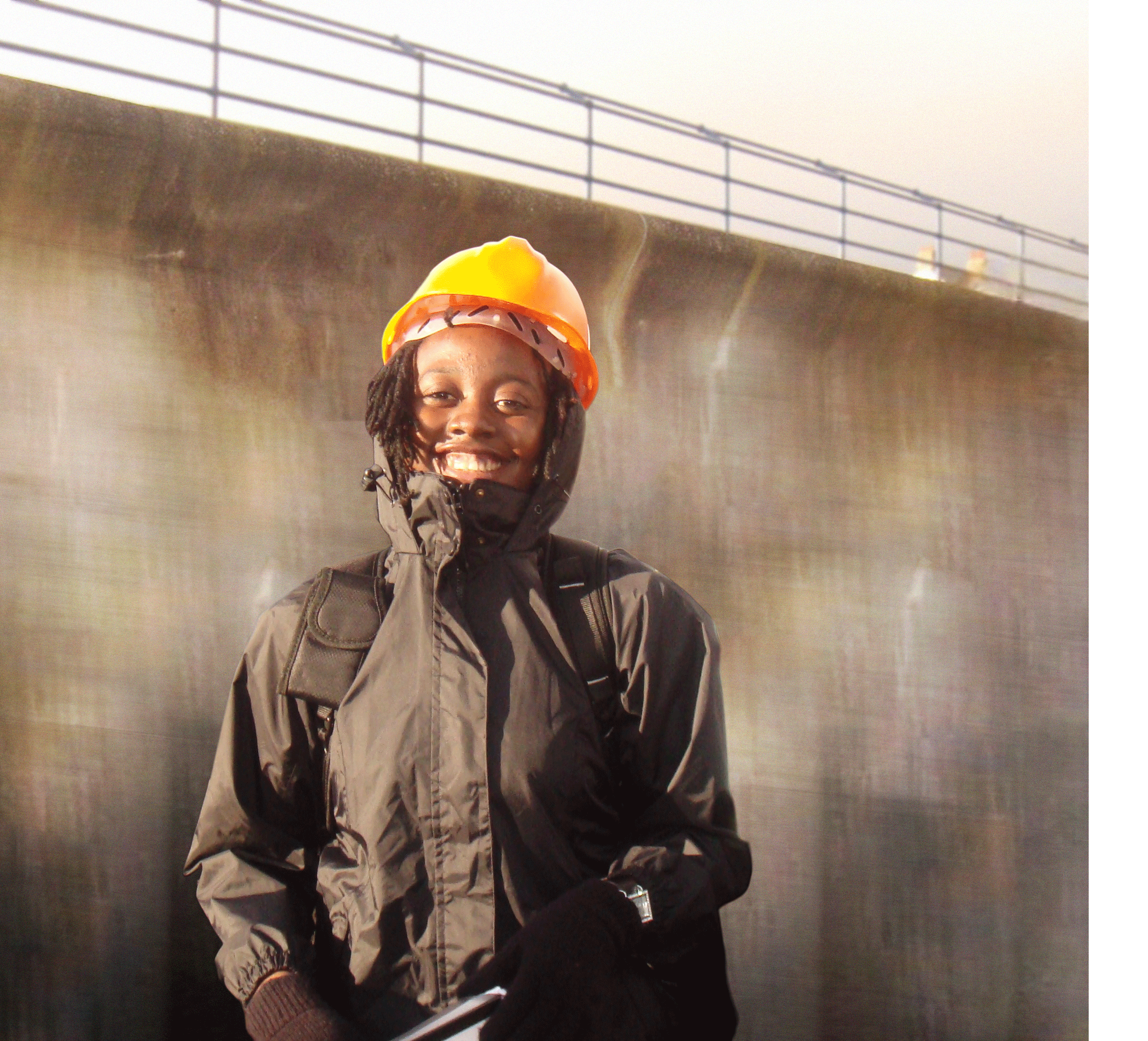
“The group of students in Edinburgh was very diverse and from all over the world”, says Aluka. “One of the best parts of the course was to go to Spain and visit outcrops to learn about the architecture of reservoirs. I learned so much more about geology, it became a little less abstract to me.”
I wasn’t here for sight-seeing
But then, after finishing her course, the oil price had just dipped in response to the 2008 financial crisis and jobs were not easy to find. Yet, Aluka was keen to stay in the UK.
“It’s nice to be in Edinburgh, I thought, but that’s not where my future job is, as that is in Aberdeen. So I moved to the granite city without having any concrete job offer yet, and without knowing anyone”, she explains.
But it paid off. Aluka found a job as a support geoscientist with the petrophysical software team at Senergy. She subsequently spent about eight years with the company, moving up from the software team to being a petrophysicist in the consultancy group.
Even though the oil price dipped in 2009, the major slide took place in 2014. Along with so many companies in the oil and gas sector, Senergy went through multiple redundancy rounds. Not an easy time for anyone.
I am not someone who likes to play the shaming game when it comes to working in oil and gas. No, it’s a shame to do that actually.
Having a job is important, but Aluka also relied on Senergy as a sponsor of her UK visa. “Finding another job is one thing”, she says, but finding another company wanting to sponsor your visa is another matter.” Being so dependent on your employer to be able to stay in a country is something that is probably hard to imagine for people who have never been in such a situation.
“So, I had a backup plan”, Aluka says. “Whilst in Aberdeen, I applied and was granted a permanent residency from Canada. Don’t get me wrong, I could have gone back to Nigeria, and I have many friends who work there, but I wanted an international career.”
Fortunately, though, Aluka never needed her Canadian visa and managed to keep her job at Senergy.
However, after eight years in Aberdeen, Scotland had become too small for Aluka, and she asked her employer if it was ok to be transferred to London where the company had another office. Astute as she is, she told management that the London team needed at least one petrophysicist to be physically there.
From LinkedIn to LYTT
“After two years working in the London team, which I enjoyed fully, I started to look around”, says Aluka, “and came across Lytt, a technology spin-off from bp.”
It turned out to be a good fit, as Lytt was all about processing data derived from a relatively new technology used in downhole logging, DTS and DAS. Distributed Temperature and Distributed Acoustic Sensing technology is based on fibre optic cables fitted in the wellbore, deployed either permanently or as part of a well intervention to monitor inflow, well integrity or perform borehole seismic acquisition.
“Amongst other things, I was tasked to come up with new ways to process and filter the data such that the trials bp was carrying out in the North Sea and in Azerbaijan were meaningful”, Aluka says.
“You’re sleeping it and waking it”
After two years at Lytt, something started nagging with Aluka. Even though she began at the company thinking to make it to retirement, over time this completely turned into a desire to be independent and set up her own business.
“What it was going to be, I had no concrete idea yet, but it was consistent and I trusted that something good was going to happen”, says Aluka. “Maybe other entrepreneurs recognize it, but it was literally on my mind 24 / 7, and I almost had to do it to set myself free!”
So, she left Lytt and entered the dark hole.
And where are we now, more than a year later? “Well, things have started to come together”, Aluka laughs.
“Quite soon after I had left, I was contacted by a company that connects entrepreneurs with tech companies to provide advise on a board level. I had to think about it for a while, but I made that step and now I meet fantastic people in the tech community, who I try and help navigate the hurdles of growing a business.”
But she is still very much present in the oil and gas industry. “It’s a long story, but I now manage a project in Ghana, looking at three different fields and coming up with plans to drill infill wells”, Aluka says. “I was responsible for finding the people to carry out the work, so in some ways, I’m back to my Senergy days, but now it’s me having to manage it all”, she laughs.
And it suits her, the combination of integrating the input from the various technical experts to communicating the results to the client. On top of that, Aluka has also become an associate petrophysicist for consultancy firms Tracs and ERCE, so it is easy to see how busy her days are.
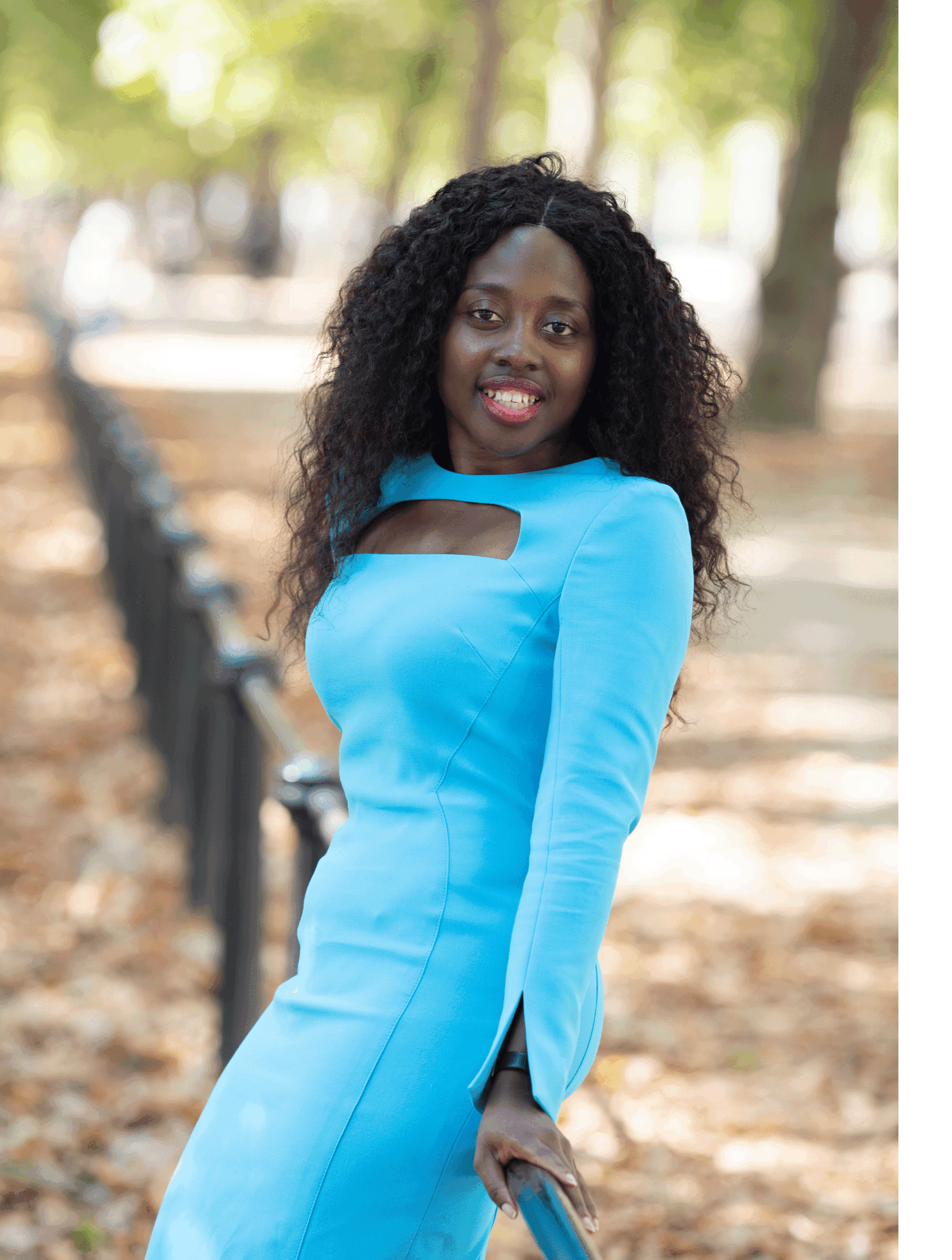
And the little secret is, all this happened only to a limited extent through social media. “I am not on X, not on Facebook, I only do LinkedIn really”, says Aluka. “I prefer that other people speak about me rather than speak about myself.”
Instead, it is the network of established contacts that has helped her most of all to get where she now is. “Authentic relationships are ones that you don’t necessarily build on social media, and it’s those that have brought me so much over the past year.”
“And do you look ahead at what’s coming next?”, I asked. “No”, Aluka concludes, “because I am doing things I like. The only thing that is in my head is expansion and never say NO to upcoming opportunities. How I will blend a new project in is a worry for tomorrow!”
For very good reasons, Aluka takes pride in what she has achieved so far. “And let’s be honest about this, it is the oil and gas industry that has given me all these opportunities. I am not someone who likes to play the shaming game when it comes to working in oil and gas. No, it’s a shame to do that actually”, she says. “We must not forget how essential oil and gas still are for society, and how essential it was for me to do all the things I’ve done. Let’s please not forget that!”

